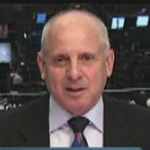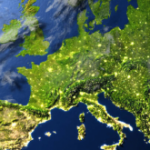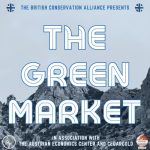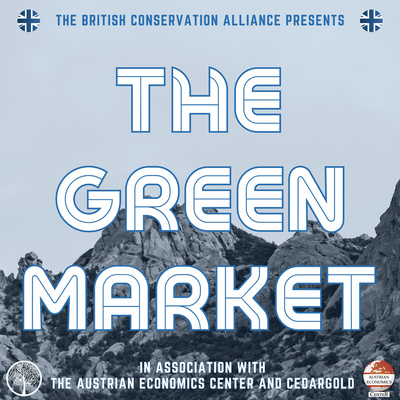1. What do you make of the government responses from around the world to the COVID-19 virus?
I look upon this topic from a different prospective from most people, as I was in China at the time when the virus was released and I was aware of events leading up to it. From the start, it was clear that this was not what it was presented as. There were military representatives from over one hundred countries in Wuhan at the time – a city that was a highly unlikely choice for a major military “get-together.” A week later, when those advisors returned home, COVID started popping up everywhere on the globe – something that doesn’t normally happen as regards virus spread. But this abnormal means of spread was effective in creating worldwide panic, which was the objective.
COVID-19 is lab-produced, but it is, structurally, a standard seasonal virus. You don’t treat a virus with a vaccine, as any vaccine is outmoded even before it’s injected, since viruses mutate constantly. To treat a virus, you improve immunity, since increased immunity will ward off any variant, not just the present one. For sixty years or more, coronaviruses have been successfully treated with products like hydroxychloroquine and Ivermectin and that’s what should be happening now. But the governments in question have no intention of wiping out COVID. It was released to create so much fear in people that they’d give up their rights in the mistaken belief that their governments could save them.
What needs to be understood is that we’re not observing governments “coping” with a virus, they are consciously transforming the method of rule through fear of a manufactured pandemic.
2. What are your thoughts on the World Economic Forum Great Reset, its goals and objectives?
Klaus Schwab grew up in a Nazi household and he’s never given up what he learned at his daddy’s knee. What he’s pursued for the last half century as the founder and head of the WEF is a Nazi vision of collectivist rule. There’s nothing new here, but the great majority of people don’t truly understand the concepts of socialism, fascism and communism. They see them vaguely as different forms of oppression, but are unaware that they all fall under the collectivist banner. All collectivist regimes that have existed to date have utilized their own personal mix of these three ingredients to create their totalitarian models. It matters little what mix of the ingredients is most effective in any given country; the end product of collectivism is the goal. In moving into collectivism, the US will incorporate remnants of capitalism in their own recipe. The transformation is now underway and the recipe will be adjusted as needed, but collectivism for the US is a foregone conclusion. The Great Reset, as Schwab presents it, is merely his personal ideal. It won’t play out exactly like that in any country. Each country that’s presently being transformed will use a recipe that sells best to its own populace.
3. Given the challenges to citizens living in jurisdictions imposing mask and social distancing mandates, rolling lockdowns and loss of freedoms and libertites, what options do these citizens have? Is it moving out of the cities to the suburbs, countryside or remote areas of the country? Is it moving overseas to countries opening up with more freedom and liberties?
Well, this is easy for me to say, as I’m not American and don’t live in the US., but I don’t live with any restrictions such as masks, social distancing, closed businesses, etc., because I choose to live in countries where a decline into totalitarianism isn’t underway. But you won’t hear about these countries on the evening news.
Americans hope to escape such tyranny by moving to Idaho or Florida, but I’m sorry to say, that will not solve the problem. To me, it’s akin to a horse finding himself in a burning barn and running to the nicest stall as his solution, when he should be running out the barn door, getting himself far away from the barn. If you live in a country that is collapsing from within, you won’t save yourself by remaining there.
4. Which countries would likely be desirable to move to and why – Uruguay? Chile? Thailand? Singapore? UAE? Malaysia? Barbados? Cayman Islands? Former Communist States like in Eastern Europe?
Each of those you mention has something to offer. Each will not only offer greater freedom and opportunity in the future, but each is also different from the others. The choice is an individual one. I live in Uruguay part of each year and it works well for me, as I’m of retirement age. But it’s no place to go if you want to open a business, as the bureaucracy and red tape are terrible. You’d want to either be retired or make a living off the internet. I also live in the Cayman Islands, which I believe will be one of the few countries to actually prosper during the economic crisis. It will be a net-recipient of wealth, rather than a net-loser, such as the US, EU, Canada and other First World countries. Of the countries you mention, Singapore and UAE will also be net-recipients.
I like Thailand very much and, although it’s not really on Westerners’ radar at present, I believe it has the ability to become to Asia in the 21st century what Switzerland was to Europe in the 20th century. But, even in choosing a country in which to live, you must then seek the best place within that country and Thailand is a good example. I wouldn’t be willing to live in Bangkok, but I like Chiang Mai very much.
As to eastern Europe, there will be considerable opportunity there as Western Europe declines, and in fact, I possess legal residency in several of them, but I don’t really envision myself living in them. They just don’t appeal to me personally. And that’s an important point to consider: Choose a country that offers more freedom than your home country, but be sure to seek out a country where you’d feel at home – where you enjoyed your surroundings and lifestyle. It may be very different from your home country, but possesses attributes that suit your personal values.
5. In retaliation to this widening gap between countries, could the countries of the indebted western world – USA, Canada, Western Europe – impose economic sanctions, travel restrictions and trade tariffs on the more free countries listed above in question 4?
Oh, yes, and I don’t doubt that they’ll try, just as they are presently doing. As they sink down the rabbit hole, they’ll try desperately to claw at the green grass above. What we’re witnessing is not world powers redeeming themselves, but declining powers exercising their last grab as they sink into a state of greatly diminished importance. They’ll be a nuisance for a while yet, but then will lose the ability to impose their edicts on the world.
6. Many citizens are concerned about a potential IMF Debt Forgiveness Program which would forgive the outstanding debt on a home by converting the debt into equity ownership by the government, in exchange for continuing to live in the home essentially for free with UBI – and assuming full compliance and participation in the vaccination programs. Do you see this potential Program happening and what potential implications do you see as a result?
Again, it’s the “burning barn” question. Many people who hear about such proposals will say to themselves, “Oh, my God, my present, life will be destroyed. Will it really happen? Do they really mean it? My question would be: Why would you remain in a country in which such a collectivist takeover is clearly in the works?
If you were standing on a train track and you saw a train barreling toward you, would you really stand still and contemplate whether it was going to change course? Or would you accept that it was going to soon destroy you and simply get out of its way?
7. If this potential IMF Debt Forgiveness Program happens, could governments use this Program to confiscate homes and all assets of any citizen not willing to participate in the Program or not meeting the requirements of the Program including compliance and participation in the vaccination programs?
Most certainly. The great majority of people are programmed to do whatever is easiest at that moment. The majority of people have already painted themselves into a corner of debt from which they can’t escape. When a back door such as cessation of ownership is offered, they’ll jump at it. You’ll then see a minority – say, five or ten percent – digging in their heels. They’ll then be made into pariahs by those who have already given in. Just as anti-vaxxers are now being vilified as evil people who are putting the entire population at risk (a ridiculous concept), those who oppose the loss of property will be vilified by their fellow citizens.
Don’t forget, this is nothing new. And it’s not hyperbole. We’ve seen this throughout history: in 1789 in France; in 1917 in Russia; as recently as 2013 in Venezuela, the majority of people always take the empty promise of an easy way out over a real solution that will require sacrifice and hard work to attain. Once a country has reached this stage, it’s essentially game over. Time to pack up and leave. Historically, no country ever reverses out of this pattern.
8. If this potential IMF Debt Forgiveness Program happens, would the indebted countries of the world implementing this Program use the Program to have their excessive and unsustainable government debts forgiven?
Oh, yes, unquestionably. After all, they’re out of tools in their economic toolbox. And they’ll do whatever they can to save themselves. But, historically, those who have spent their entire careers playing economic sleight of hand and getting away with it, fail to possess the insight necessary to understand that economic parlour tricks ultimately fail, because they’re simply not real. Keynesian economics is not real; modern monetary theory is not real. They’re a sham. In the end, classical economics will always return because it’s based upon the principle that an economy is based upon someone providing a good or service that another person seeks and is willing to pay for.
So such moves will be the last gasp of a dying economic structure that has over time been altered and perverted to the point of its natural conclusion: collapse.
The question should not be, “How do I survive within this burning barn?” It should be, “How do I exit this burning barn?”
Disclaimer: The views or opinions expressed in this blog post may or may not be representative of the views or opinions of the Financial Repression Authority.





 03/24/2021 - Gerard Minack – The rotation into last cycle’s laggards will continue, while the former leaders will be facing headwinds.
03/24/2021 - Gerard Minack – The rotation into last cycle’s laggards will continue, while the former leaders will be facing headwinds.













